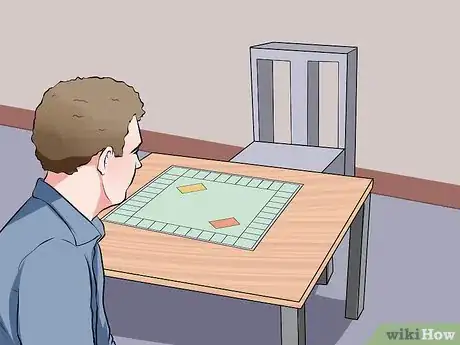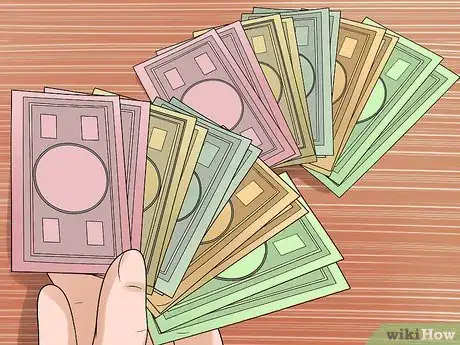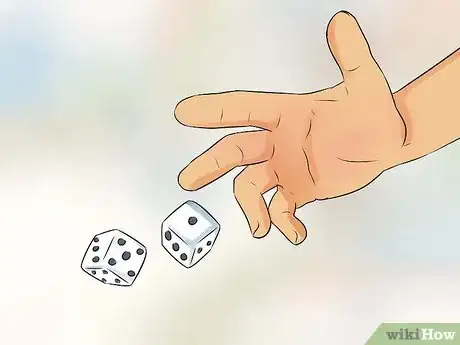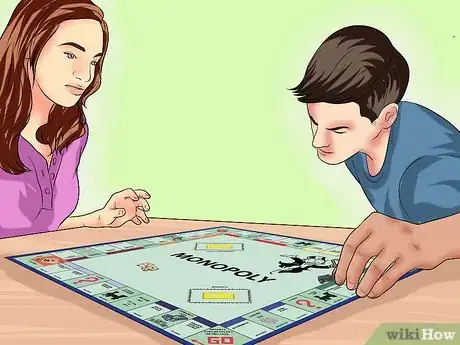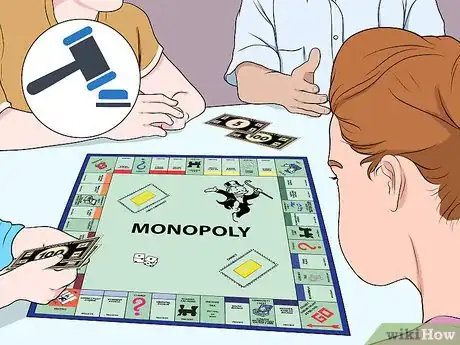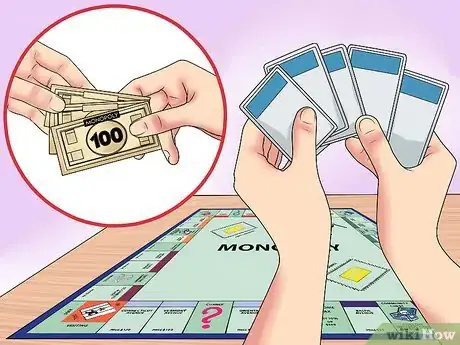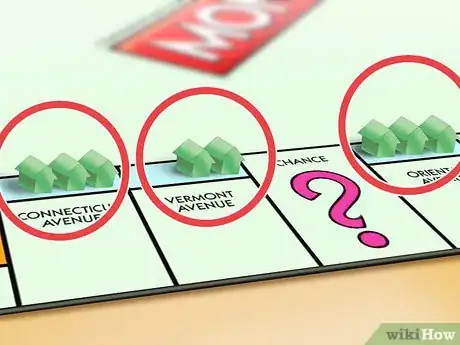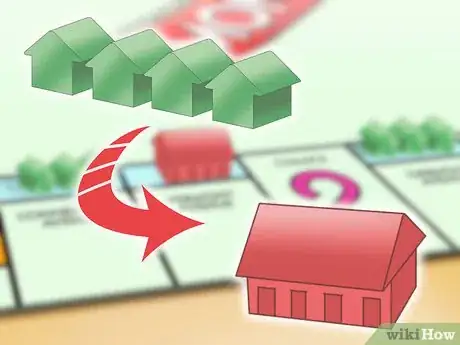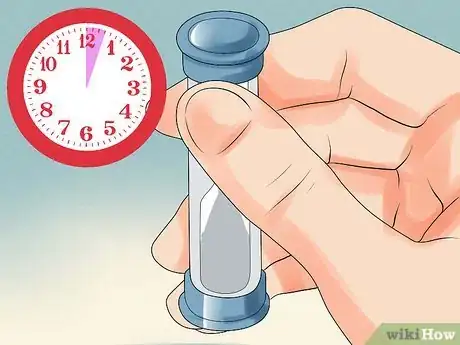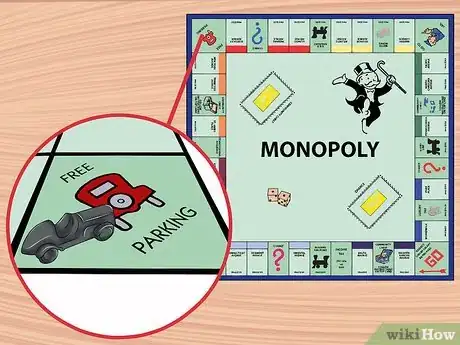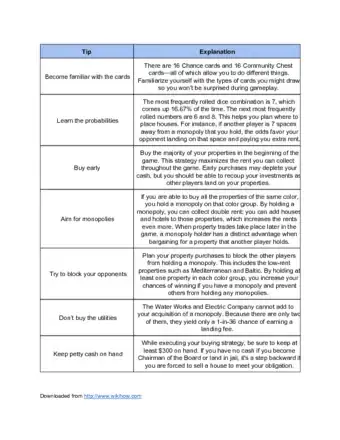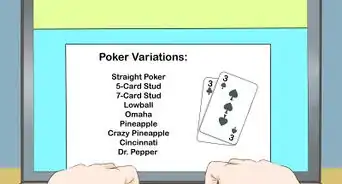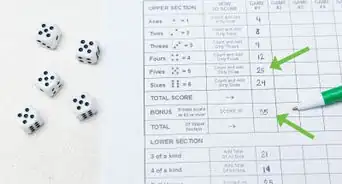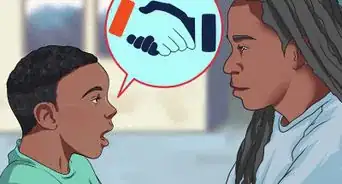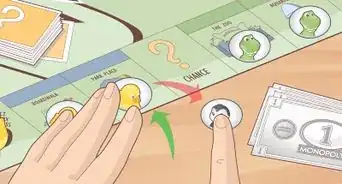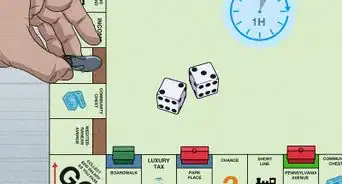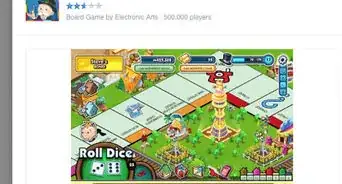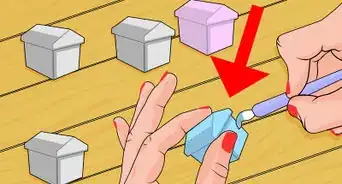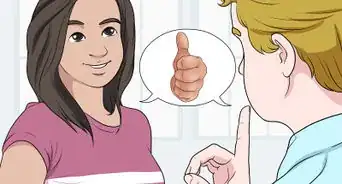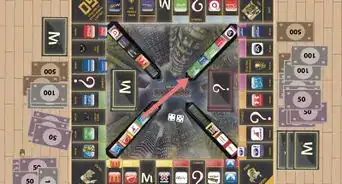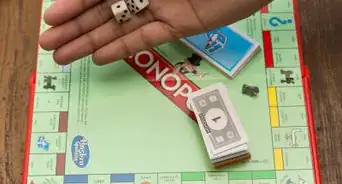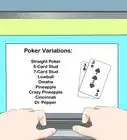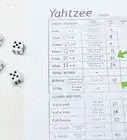This article was co-authored by wikiHow staff writer, Eric McClure. Eric McClure is an editing fellow at wikiHow where he has been editing, researching, and creating content since 2019. A former educator and poet, his work has appeared in Carcinogenic Poetry, Shot Glass Journal, Prairie Margins, and The Rusty Nail. His digital chapbook, The Internet, was also published in TL;DR Magazine. He was the winner of the Paul Carroll award for outstanding achievement in creative writing in 2014, and he was a featured reader at the Poetry Foundation’s Open Door Reading Series in 2015. Eric holds a BA in English from the University of Illinois at Chicago, and an MEd in secondary education from DePaul University.
There are 9 references cited in this article, which can be found at the bottom of the page.
wikiHow marks an article as reader-approved once it receives enough positive feedback. In this case, 100% of readers who voted found the article helpful, earning it our reader-approved status.
This article has been viewed 1,987,619 times.
Learn more...
Monopoly is a classic board game loved by people of all ages. But if you’ve never played before, you might need some help. Alternatively, you may simply need a quick refresher on the rules. In any case, we’re here to help! In this article, we’ll show you how to set up the board, play by the official rules, and end the game (hopefully at a reasonable time).
Things You Should Know
- Monopoly is designed for 2-8 players. The goal of the game is to bankrupt your opponents by buying property, building houses, and charging rent.
- Select one player to be the banker. The banker hands out deeds, makes change, and distributes money to other players.
- When you land on unpurchased properties, you can purchase them. If you can’t purchase it (or don’t want to), it is auctioned off to other players.
- Gameplay ends when only one player remains.
Steps
Setup
-
1Find 2-8 players for your game. Monopoly is designed for fewer than 8 players. Just know, the game can feel unique (or take longer) depending on how many players you have.[1]
- 2 player games: both players will be evenly matched, so the game can last a long time. Once someone gets lucky or makes a great move, they usually win the game without a Chance for their opponent to catch up.
- 3-5 player games: these games tend to be well balanced for fairness and enjoyment. Games tend to last about 2 hours. There's a lot of room for the losing players to stay in the game.
- 6-8 player games: these take the longest to play, and there’s going to be a lot of time between turns. However, it can feel like you’re at a real disadvantage if you’re one of the last players to go.
- Monopoly is intended to be played by people aged 8 or over. If a lot of your players are younger, consider playing Monopoly Junior instead! It’s designed for younger kids.
- You can play Monopoly online if you’d like. Play a public game with strangers, or play a private game with friends.
-
2Nominate a player to be the banker. The banker is in charge of all the money, property, houses, and hotels that belong to the bank. The banker can still play the game, but they do need to keep their money separate from the bank’s.[2]
- If it is easier, just place the box where everybody can reach it and allow people to help themselves to money, houses, and properties as needed.
Advertisement -
3Unfold the board and set out the Chance and Community Chest cards. Unfold the Monopoly board and lay it on a flat surface. Make sure each player has enough space to keep their money and property deeds in front of them. Place the Chance and Community Chest cards on the board in their marked spaces.[3]
- The Chance cards are orange and have a ? on them. The Community Chest cards are blue and have a treasure chest on the back.
-
4Allow each player to select a token to represent them. Each player gets a game piece to move around the board. The game comes with a large selection, but you can also play with any small object. It does not matter what piece you choose as they all serve the same purpose.[4]
- Younger players tend to get very excited to choose certain pieces. Let them pick first if you can!
-
5Give each player $1,500 to start. The banker gives everybody their starting money. Players can organize their money any way they’d like. Players may also exchange money for different bills of the same value once play begins. For example, someone can give a $500 note to the bank in exchange for 5 $100s.[5] Each player starts with:
- US Version | UK Version
- 2 $500s | 2 £500s
- 2 $100s | 4 £100s
- 2 $50s | 1 £50
- 6 $20s | 1 £20
- 5 $10s | 2 £10s
- 5 $5s | 1 £5
- 5 $1s | 5 £1s
-
6Roll the dice and have the player with the highest roll go first. Play continues clockwise around the table. You may also use alternative rules to let the youngest or newest player to go first.[6]
Gameplay
-
1Roll the dice and move your game piece. On each turn, the active player rolls the dice and moves their game piece the same number of spaces. If you roll doubles, you get to move again after resolving the space you have landed on.[7]
- If you roll doubles a third time on the same turn, you must immediately move your token into jail, since you’ve been “caught speeding” for traveling too far.
-
2Read the space you landed on and buy property or pay rent. Monopoly has a variety of different. Most of them are properties that you can buy or pay rent on, but some of them require you to draw a card from one of two decks, collect money, or even go to jail.[8] Note:
- Nothing happens when you land on “free parking.”
- If you land naturally on the jail square, put your piece in the “just visiting” lane.
- Any taxes are paid directly to the bank.
- If a Chance card says to go to the “nearest” utility or railroad, you are always expected to go forward and not backward - collecting $200 if passing go on the way.
-
3Buy an unowned property when you land on it if you’d like. If you are the first one to land on a square with a colored stripe across the top, a railroad, or a utility, you may buy the property for the amount printed on the board. Pay the bank and the banker gives you the title deed for that property.[9]
- Most players recommend buying every property you can, since you win by building a real estate empire.
- You do not have to buy a property if you don’t want to; it may be ideal to skip a property if you’re saving up cash to buy properties or something like that.
- You cannot buy a property if you do not have enough money to purchase it unless you choose to mortgage other properties in order to do so.
-
4Auction property that players choose not to buy. If a player lands on an unowned property but chooses not to buy it, then the property is auctioned and awarded to the highest bidder. This rule is part of the official game but many people omit it at home.[10]
- Whenever a player who lands on an unowned property opts not to buy it, the banker takes over and auctions it off immediately.
- The player who initially declined to buy the property at the printed price can still participate in the auction.
- Bids can start at any price and keep going until no one wants to increase their bid. In the rare event that absolutely no one wants the property, it returns to the bank and the game resumes.
-
5Collect (or pay) rent when a player lands on owned property. If you land on someone else's property, you must pay them the rent printed on the title deed card for that property (unless they have mortgaged the property). Rents vary according to the price of the property, whether or not a player has a complete color set (monopoly), and if they’ve built houses or hotels.[11]
- If a player cannot afford rent, they can mortgage property to raise cash by flipping an owned property upside down and taking the amount on the card from the bank. You do not collect rent from mortgaged properties.
-
6Buy all the properties in a colored group to get a monopoly. If you own all the properties in a colored group, you have a monopoly! This is one of the main goals of the game, since you can bankrupt other players easily if you have a monopoly. Players with a monopoly get to charge double rent for their property on unimproved sites of that color set.[12]
- The reason rent is so high when you have a monopoly is based on real life business as no competitors means no need to fight for the lower price.
-
7Build houses on properties if you have a monopoly. If you have a monopoly, you can start to build houses on any of those properties to charge more rent. The building prices are listed on your property deed. You can build up to four houses on each property of your monopoly.[13]
- Buildings raise the rent on your property significantly. For example, the first property on the board, Mediterranean Avenue, rents for $2 without any buildings. When you build four houses, you can charge $160!
-
8Build a hotel after you've built four houses. The most lucrative buildings you can add to your properties are hotels. After you've built four houses, you can buy a hotel from the bank to replace the houses. The hotel is the heavy hitter in monopoly, and if a player lands on a hotel they’ll usually have to empty their pockets paying the rent.[14]
- You have to build 4 houses on a space first before you can buy a hotel; you can’t just save up for the hotel on its own.
-
9Collect $200 whenever you pass the GO square. Every time a player lands on or passes over the corner space marked "GO," they earn a $200 salary. This is a great way to add a little cash to your reserves![15]
- According to the official rules, you only get $200 for passing or landing on the GO square, but some players use a house rule where you collect more whenever you land right on GO.
-
10Take a Chance or Community Chest card when instructed to. If you land on a spot marked "Chance" or "Community Chest," take the top card off of the corresponding deck of the space that you landed on. These cards have effects that can cause you to earn or lose money, move you around the board, or even send you to jail.[16]
- When you're done reading the card, perform the instructions and then return it to the bottom of the corresponding deck.
- There's also the infamous "get out of jail free" card. You hold on to this card until you use it.
-
11Go to jail when you’re instructed to. Going to jail prevents you from moving around the board until you're free, but you still can collect rent, buy houses, participate in auctions, and trade with other players. There are three possible ways to go to jail:[17]
- Landing on the space marked “Go to Jail.” The player goes diagonally across the board to the jail space without passing GO, and their turn ends immediately.
- If you pick a Chance or Community Chest card that tells you to go to jail, your turn ends immediately and you move your token to the jail square.
- Rolling 3 consecutive doubles on the same turn also sends you to jail immediately. Place your token into the jail cell as soon as the third double is rolled.
- You can get out of jail by paying $50 bail, using a Get Out of Jail Free card, or rolling doubles on your next turn. If you succeed in rolling a double to get out of jail, you move forward the given number of spaces but do not take another turn. You must leave jail on your third turn and immediately pay $50 if you fail to roll doubles on that turn.
-
12Make deals with other players at any time. Trading with other players is a key part of the strategy of any Monopoly game. This is usually how you obtain a monopoly to build houses and hotels. Many players also have house rules that allow them to grant rent immunity to another player, lend money to another player, or borrow from the bank without mortgaging property.[18]
- Do not include any house rules during your first game as including them can impact the enjoyment of the game and extend how long the game goes on for which isn't a good thing.
Ending the Game
-
1Set a time limit to determine the winner (optional). If you want a faster game, try setting a timer for 1 or 2 hours. When the timer goes off, each player counts their total amount of money, the printed prices of all their unmortgaged properties, half the prices of all their mortgaged properties, and the printed prices of all houses and hotels. The richest player wins the game![19]
- Monopoly is notorious for taking a very long time to play—especially if you have a lot of players. A time limit can keep a fun game from turning a little tiresome.
-
2Avoid awarding money for landing on free parking. Many people use a variation of the rules to add more money to the game. Instead of putting tax money or other payments back in the bank, they put it in the center of the board and give it to anyone who lands on Free Parking. While it's fun to win a pile of money, it actually makes the game go on for much longer![20]
- If you do want to extend the game, the “free parking jackpot” rule is a great way to allow players who are behind to get back in the game.
-
3Mortgage property if you can’t pay a tax or rent. You can also choose to mortgage a property to buy other properties, houses, or hotels. When a property is mortgaged, no rent can be collected. To unmortgage it, you must pay 10% interest when you pay it off.[21]
- Mortgages have their rewards and their consequences. You should only mortgage a property to avoid bankruptcy or to make a quick boost of money for buying more properties and trading.
- You can also sell your mortgaged properties to other players, causing them to pay the bank if they want to collect rent on that property. The 10% interest is far better than the 50% loss from selling buildings.
-
4Leave when you go bankrupt or keep playing until you win. If you owe more money than you and your assets can afford, you're declared bankrupt and are out of the game. In official rules, your money and properties are given to the player who caused you to become bankrupt after selling all the buildings first.[22]
- If you want a “fairer” house rule, auction off every player’s property instead of giving it to the person who caused them to go bankrupt.
- Play continues until one player is left standing.
Monopoly Strategies
Community Q&A
-
QuestionHow many hotels can I put on one property?
 DonaganTop AnswererThe official rule is one hotel per property.
DonaganTop AnswererThe official rule is one hotel per property. -
QuestionWhat do you do if no one is winning the game?
 Community AnswerMany professional competitions play until there is a winner, but you can quit at any time. The winner would be the person with the most cash and property, as determined by the "Property Worth" on the back of each property card.
Community AnswerMany professional competitions play until there is a winner, but you can quit at any time. The winner would be the person with the most cash and property, as determined by the "Property Worth" on the back of each property card. -
QuestionWhen do I mortgage a property?
 Community AnswerYou mortgage a property when you don't have enough money to pay a debt.
Community AnswerYou mortgage a property when you don't have enough money to pay a debt.
References
- ↑ https://www.hasbro.com/common/instruct/00009.pdf
- ↑ https://www.hasbro.com/common/instruct/00009.pdf
- ↑ https://www.hasbro.com/common/instruct/00009.pdf
- ↑ http://richard_wilding.tripod.com/monorules.htm
- ↑ https://www.hasbro.com/common/instruct/00009.pdf
- ↑ https://www.hasbro.com/common/documents/dad288661c4311ddbd0b0800200c9a66/E2F8495450569047F5D85567777BDBAE.pdf
- ↑ https://www.hasbro.com/common/instruct/00009.pdf
- ↑ https://www.hasbro.com/common/instruct/00009.pdf
- ↑ https://winning-moves.com/images/monorulesclassicV2.pdf
- ↑ https://www.hasbro.com/common/instruct/monins.pdf
- ↑ https://www.hasbro.com/common/instruct/00009.pdf
- ↑ https://winning-moves.com/images/monorulesclassicV2.pdf
- ↑ https://www.hasbro.com/common/instruct/00009.pdf
- ↑ https://www.hasbro.com/common/instruct/00009.pdf
- ↑ http://richard_wilding.tripod.com/monorules.htm
- ↑ https://www.monopolyland.com/list-monopoly-Chance-community-chest-cards/
- ↑ https://www.hasbro.com/common/instruct/00009.pdf
- ↑ https://www.marmaladegamestudio.com/best-monopoly-strategy/
- ↑ https://monopoly.fandom.com/wiki/Monopoly_Rules
- ↑ https://www.monopolyland.com/what-does-free-parking-mean-in-monopoly/
- ↑ https://www.hasbro.com/common/instruct/00009.pdf
- ↑ https://www.hasbro.com/common/instruct/00009.pdf
About This Article
Monopoly is a 2-8 player board game where players buy properties and try to get the other players to go bankrupt. To start the game, choose one player to be the banker. The banker is responsible for changing out money, collecting bank fees, and distributing money for passing Go. The banker gives $1,500 to each player that's made up of two $500's, two $100's, 2 $50's, 6 $20's, 5 $10's, 5 $5's, and 5 $1's. Place the Chance and Community chest cards face-down on their spots in the middle of the board. Then, each player selects a token and places it on the Go space. Each player rolls a pair of dice and the player with the highest roll goes first. On a player's turn, they roll the dice and move their token that number of spaces. If the player lands on a utility, property, or railroad, they may purchase the deed from the bank and collect the card for that property. If they land on a Chance or Community Chest space, they draw a card from the corresponding pile and follow the instructions on the card. If a player can’t afford or doesn't want a property, utility, or railroad, the property goes up for auction. During an auction, each player can bid to buy the property. Whoever bids the highest amount wins and gets the property. If a player lands on a property, utility, or railroad that's already owned by another player, they owe that player the rent price listed on the deed. Players can increase the rent owed on their properties by owning a complete set of one color, called a monopoly, and buying houses and hotels on those properties. Whenever a player passes Go, they collect $200 from the bank. Once a player is done with their turn, the player to their left goes next. If a player rolls doubles, they roll again after their first turn is over. If a player rolls three doubles in a row, they go directly to the Jail space on the board. Players may also be sent to Jail by Chance or Community Chest cards or by landing on the Go to Jail space on the board. If a player ends up in Jail, they can either pay $50 to get out at the beginning of their next turn, or they can try rolling doubles on their next turn to get out for free. If they don't get doubles, they have to wait until their next turn to try again. If 3 turns go by and they still don't get doubles, that player pays $50 and leaves Jail. Players are allowed to trade properties with other players during their turn to try to build monopolies. If a player can't afford to buy a property or pay another player rent, they can mortgage their properties and collect the mortgage value from the bank. Players don't collect rent on mortgaged properties. If a player runs out of money at any point in the game, they lose. If they ran out of money by landing on another player's space, all of their property and remaining money goes to that player. The game continues until only one person is left in the game and wins! For more strategies and ways to adapt the rules to your preferences, read on!

